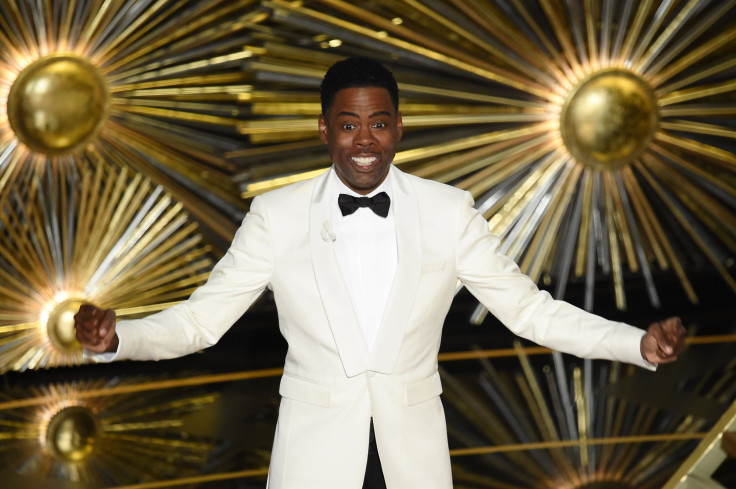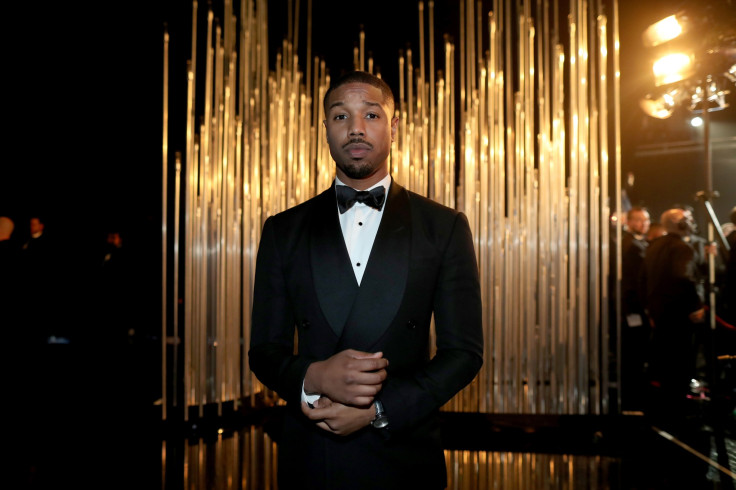Oscars 2016: Chris Rock’s Trip To ‘Compton’ Pointed Out Hollywood’s Real Diversity Problem During An ‘Oscars With A Message’

LOS ANGELES — Not that anyone expected different, but Chris Rock took no time taking on Hollywood’s diversity shortcomings in a pungent opening monologue where he called its culture “sorority racist” and asked for actors like Jamie Foxx to just be considered for the same roles that eventual best actor winner Leonardo DiCaprio gets year after year.
But Rock is arguably America’s most incisive commentator on racial issues, which is why he was the perfect host for a year in which Hollywood’s diversity issues sucked most of the rest of the Oscars oxygen out of the room. He can be cutting and thought provoking without being preachy. Most people can’t, which ended up turning this year’s “Oscars with a purpose” into a meandering rally for a bunch of other social issues that felt more like a very well-produced telethon. Not every messenger can be Chris Rock, and his most effective bit was when he went straight into “Compton.”
There were plenty of effective non-Rock moments: Vice President Joe Biden, a Hollywood favorite, gave a passionate speech advocating for victims of sexual assault when he introduced Lady Gaga, whose powerful performance of her Oscar-nominated song written for a movie about campus rape was a highlight of the evening. Kevin Hart went off-script to give heartfelt encouragement to black actors and actresses struggling for their big break. And Oscar winner Sam Smith lovingly dedicated his award to the LGBT community, even if he didn’t have all his facts correct.
But it didn't all work. “The Big Short” director Adam McKay told a crowd full of Hillary bundlers not to vote for someone who takes money from Wall Street. There was a truly bizarre Ali G appearance. And DiCaprio used his long-awaited victory speech to sound a clarion call about climate change, one that’s been heard loud and clear in Hollywood since Al Gore was raising cash here.
If the #Oscars is dedicated to improving diversity, we need to talk about that crude Asian joke. https://t.co/0OwZeFagsb
— Jessica Contrera (@mjcontrera) February 29, 2016
Rock had one major slip-up when he made a joke about young Asians and accounting that didn’t land and rattled noisily around social media, but he largely rewarded the audience’s excitement about his hosting gig. His most instructive segment was when he went to a movie theater that appeared to be at the Baldwin Hills-Crenshaw Plaza mall in south Los Angeles. He said it was in Compton, but there are no movie theaters in the city. Rock shot the breeze in the parking lot with a handful of black moviegoers who seem to be regulars at the theater. When he brought up Oscar nominees such as “Bridge of Spies” and “Trumbo,” some thought he was talking about foreign films.
“The Martian” was the only film nominated for best picture that cracked the top 10 in the worldwide box office last year, and it scored no Oscar awards. Australian-American action film “Mad Max: Fury Road,” the 19th-highest-grossing movie of the year, cleaned up with six Oscars, but none for acting or directing. “Star Wars: The Force Awakens,” which holds dozens of box office records and is on track to become the biggest movie ever, got nothing.
The aesthetic preferences of the Academy’s disproportionately older and whiter voting body means that relatively niche films reign, and period dramas tend to be over represented. And while the Academy is in the process of infusing its voting base with some more youth and diversity, change happens slowly, which is likely to keep #OscarsSoWhite even if doors open in Hollywood. Kevin Hart is in a lot of movies, but he’s not in the type of films set in early 20th century Europe that Oscar voters disproportionately love. Rock’s trip to “Compton” made that clear.
And that’s why, as Rock pointed out, diversity in Hollywood is about actors like “Creed” star Michael B. Jordan — who many thought was snubbed — getting the opportunity for the roles DiCaprio was cast in at the same age. Or it’s about an Academy that recognizes “Creed” and “Straight Outta Compton” as equally legitimate candidates for the premier awards as “The Danish Girl” and “Brooklyn,” both historical dramas set in the last century.

In a year when Hollywood’s diversity issues were front and center on the program, the best actor, best supporting actor and best supporting actress Oscars were for historical roles based on white people set at least 50 years ago. Leonardo DiCaprio won his long-awaited best actor trophy for his portrayal of Hugh Glass, an early 19th century frontiersman. Mark Rylance in “Bridge of Spies” and “The Danish Girl” star Alicia Vikander, both historical roles that called for white Europeans.
Even winning black roles have disproportionately been in period or biographical films such as Morgan Freeman’s win for “Shawshank Redemption,” Lupita Nyong’o in “12 Years a Slave” and Foxx’s bravura performance in “Ray” — which Rock said was so good “that they went to the hospital and unplugged the real Ray Charles.” It’s telling that Denzel Washington’s first Oscar came from playing a character from the 1860s. He finally won for his portrayal of a fictional contemporary black man in 2001. One of his competitors: Will Smith, as Muhammad Ali.
But despite the cavalcade of cross-cultural stars on stage, Brie Larson was the only one of the four acting award winners who played a role that wasn’t always intended for a white person. And even best picture winner “Spotlight” was based on a true story that incidentally featured mostly white people. Jamie Foxx and Lupita Nyong’o are obvious stars. Michael B. Jordan is, too. But there are not that many roles for them in “The Danish Girl.”
© Copyright IBTimes 2025. All rights reserved.





















